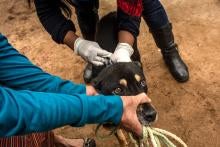Collaboration for success: the Global Initiative for Childhood Cancer in Latin America
The Global Initiative for Childhood Cancer (GICC) aims to increase the cure rate for children with cancer globally by improving healthcare access and quality. The Pan American Health Organization (PAHO), St. Jude Children’s Research Hospital (St. Jude), and collaborators have joined efforts to improve outcomes of children with cancer in Latin America and the Caribbean (LAC) using the CureAll framework. In this article, we describe the process of developing regional resources aimed at accelerating the GICC implementation in LAC.













